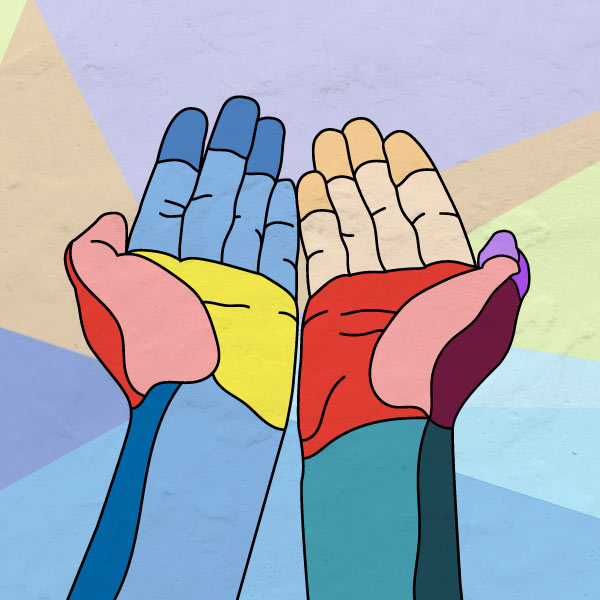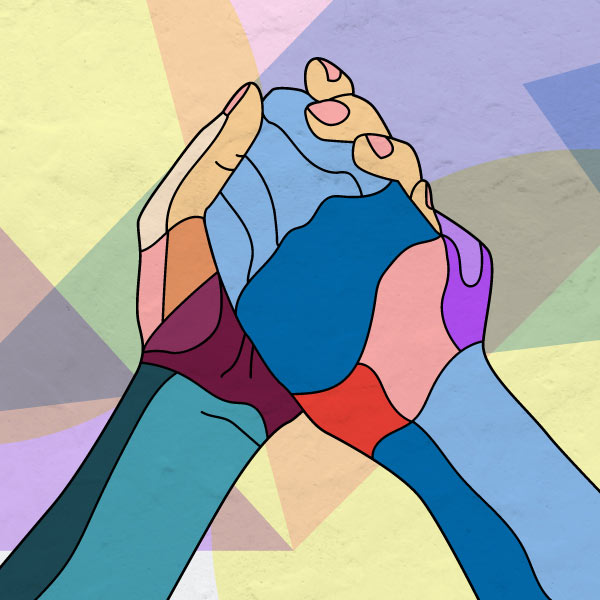“Breaking Good”:
Bringing Global Insights into Public Health Challenges in the US
How an optimistic problem solver and non-profit CEO is working with community organizations and non-profits to understand their most pressing challenges and connect them with resources to bring solutions to life.
Joe Agoada is the host of a social impact podcast and a steward of public health. Joe’s approach? “Breaking Good.”
“Breaking good is multidimensional, but it speaks to the fact that our traditional approach to humanitarian relief efforts hasn’t always worked,” said Joe. “It’s not about ‘saving’ communities in need; it’s about helping them get the resources, support and training to carry out their own ideas. We have an opportunity to work together, break old habits and build something better.”

Joe coined the phrase as an expression of opportunity, and it was through his years of experience working in global public health that Joe developed this perspective.
While in Uganda, Joe saw first-hand how people delivered and received care, getting an inside look at hospital rounds in rural and urban areas. Ultimately, his time in Africa – including a four-year stint at UNICEF – sparked a passion for identifying and addressing problems at their root causes.
In Kampala, Joe learned that hospitals nationwide were seeing increased disease progression because patients weren’t getting primary care. Many in the field believed patients’ lacked health education, but Joe learned that transportation was, in fact, the underlying issue. The solution? Joe founded his first non-profit organization, which delivers bicycles to nurses in a rural village near the border of Uganda and Rwanda, so they can provide primary care to rural communities.
In Cambodia, Joe spent time working on complex problems like early outbreak detection.
In Brazil, Joe collaborated with young people to find solutions to the local effects of climate change.
“In my years working abroad, I learned that a top-down approach doesn’t work well, even with the best of intentions. The people best equipped to identify the needs of a community are the people in the community,” Joe said. “Real progress starts with listening. Then communities, local coalitions and support organizations can work together as true partners, bringing in the right resources, helping to build capacity and creating sustainable solutions.”
“Breaking Good” closer to home.
When he returned to the U.S., Joe was eager to apply what he’d learned internationally. With a clear goal to focus on improving public health in the U.S., it didn’t take long for Joe to find his next challenge: the opioid crisis.
It started with a request from the U.S. Centers for Disease Control and Prevention (CDC). They were looking for assistance addressing the opioid crisis and Joe immediately dug in, organizing a community crisis meeting that revealed the depth and breadth of the problem.
“The community crisis meeting really opened my eyes to how much need exists in the U.S. In fact, my community in New Jersey had some of the highest rates of opioid-related overdose and death,” said Joe. “I saw opportunities to be innovative and use the skills I learned working in communities abroad to help communities here at home.”
In 2018, Joe launched the Opioid Response Innovation Initiative (ORII) to strengthen grassroots response to the opioid crisis. Their work was fueled by an initial investment from Purdue Pharma, which recognized the importance of capacity building and creating sustainable approaches to solving challenges, and the potential in the approach’s model.
“What I look for in a collaboration – which we have with Purdue – is the opportunity to build an equitable partnership that is more than transactional,” said Joe. “In my experience, it’s critical to work alongside individuals in organizations that are also driven by purpose.”
ORII’s work starts by connecting with grassroots organizations to better understand the needs of their communities. Joe and his team listen. Leaders of public health departments, community-based nonprofits and local coalitions explain their organizations’ issues and, together, they identify where and how they could improve existing programs and create new solutions to solve problems.
“The community crisis meeting really opened my eyes to how much need exists in the U.S.”
In an Appalachian community, Joe’s team learned about a critical need for public transportation for community members to access their doctor’s appointments, recovery meetings and legal proceedings. The challenge? A bus service was already in place, but the system wasn’t effective or rider friendly. Joe and ORII stepped in to help bridge the disconnect and learn why the service wasn’t working. The result? A new and improved public bus service with updated stops and routes, making the service convenient and usable for the people who need it.
In Arizona, ORII partnered with a non-profit that helps unhoused individuals with substance use disorder. The organization wanted to optimize its operations statewide but lacked the capacity and infrastructure to do so. With new data collection procedures and tools for the organization’s outreach workers in the field, the non-profit standardized their processes, which allowed them to gain insights to better serve homeless individuals across the state.

“People want purpose in their work. The people we partner with in the community all started with purpose, but it’s hard when you get beaten down by systems that perpetuate outdated, inefficient legacy systems,” said Joe. “When we connect them with the resources they need to take ownership, they rediscover the purpose that led them into the work in the first place. That’s the environment where you can break good and make a meaningful, lasting change.”
Just one month after ORII received 501c3 status in February 2020, the team established its parent nonprofit called Sostento Inc. and ramped up to support its partners in the wake of COVID-19. They grew from a team of three to 12 and rapidly pivoted to develop tech solutions for vital community services and programs disrupted by the pandemic.
Times of crisis and change can be overwhelming, but Joe, ORII and their partners are more resolved than ever to help communities address their most pressing challenges. The goal? Keep breaking good.
Learn more about Joe and stories of social impact on his podcast Let’s Break Good.
